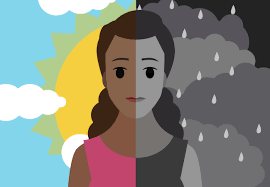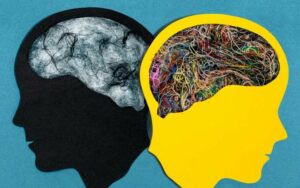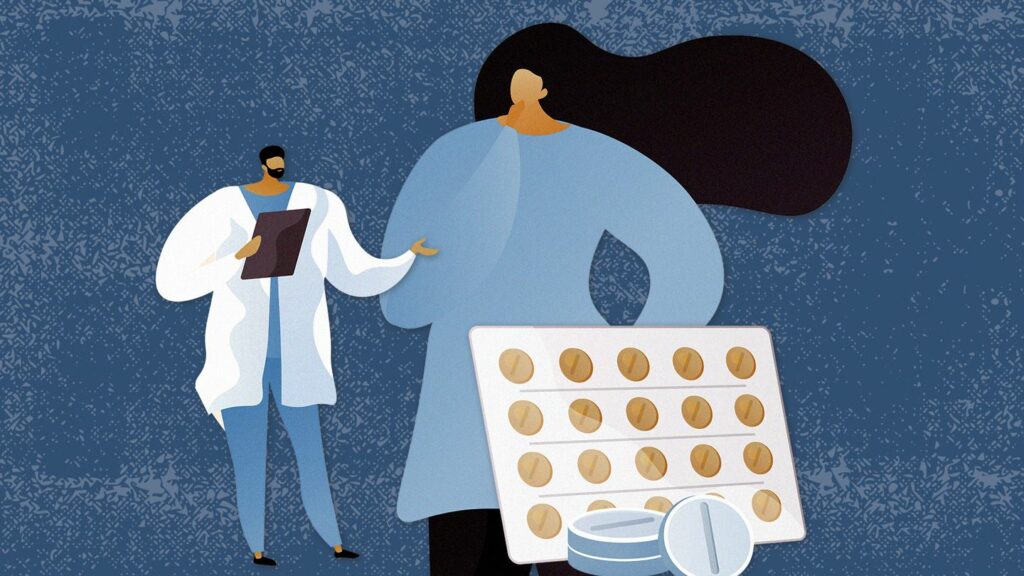Whether it’s despair, exhaustion, or fear, most of us can recall a time when we were overwhelmed with emotions. But for those living with bipolar depression, this overwhelming emotion is a regular part of life. Bipolar depression can be debilitating and interfere with daily functioning; however, there are various therapeutic approaches to managing the disorder. In this blog post, we will discuss how therapy can help people living with bipolar depression cope with and manage their symptoms. We will also explore different types of therapies available to those suffering from this condition to help them lead a more positive and fulfilling life.
Contents
What is Bipolar Depression?

Bipolar depression is a type of depression that occurs in people who have bipolar disorder. People with bipolar disorder experience periods of manic or hypomanic episodes, followed by periods of depressive episodes. Bipolar depression can be a very debilitating condition and can make it difficult for people to function in their everyday lives.
The signs of bipolar depression include persistent negative thoughts, lack of energy, difficulty concentrating and making decisions, changes in sleep patterns, irritability, restlessness, and feelings of worthlessness or hopelessness.
Reasons for Bipolar depression can also be attributed to environmental factors such as stress, trauma, or a history of substance abuse.
Treatment of Bipolar Depression
Treating bipolar depression involves a combination of therapy and medication. The goal is to help the individual manage their overall symptoms while helping them gain skills to cope with daily life stressors.
Some types of treatment methods are medications, psychotherapy, lifestyle changes, and support groups that can help people living with bipolar depression manage their symptoms.
Types of Therapy for Bipolar Depression

Many different types of therapy can be effective for treating bipolar depression. Some common types of therapy include:
Cognitive Behavioral Therapy
One type of therapy used to treat bipolar depression is cognitive behavioral therapy (CBT). CBT helps people identify and change negative thought patterns that can contribute to depressive episodes. It also teaches people how to recognize and cope with triggers for manic or hypomanic episodes.
The working of this therapy is based on the idea that thought processes, not events, cause emotions and behaviors. The therapist works with the patient to identify irrational or negative thoughts, challenge them and replace them with more positive ones.
Interpersonal Therapy
Interpersonal therapy (IPT) focuses on helping people identify and address any issues in their relationships that may be affecting their mood. This type of therapy may also help people to better understand their emotional needs and how to communicate them more effectively.
IPT often involves focusing on topics such as communication, expressing emotions, problem-solving, managing stress, and resolving conflicts with others. The therapist works with the patient to identify any issues in their relationships that may be interfering with their mental health.
Dialectical Behavior Therapy
Dialectical behavior therapy (DBT) is a form of psychotherapy that focuses on helping people to better regulate their emotions and behaviors. The goal of DBT is to help people develop skills such as mindfulness, distress tolerance, emotion regulation, and interpersonal effectiveness. This type of therapy can be particularly effective in helping people with bipolar depression to manage their symptoms.
Group Therapy
Group therapy is another type of therapeutic approach that can be helpful for those living with bipolar depression. This type of therapy involves people coming together in a group setting to support and learn from each other. It can help people who are struggling with similar challenges to gain insight into their own experiences and to understand that they are not alone.
Group therapy can be a great way for people to gain support from others who have similar experiences, as well as to learn about different strategies for managing their symptoms.
Psychodynamic Therapy
Another type of therapy that is sometimes used in treating mental health issues is psychodynamic therapy. This type of therapy focuses on the unconscious mind, exploring how early childhood experiences might be influencing current behavior.
Through this exploration, individuals can gain insight into their motivations and behaviors and can then work to make changes in the present. Psychodynamic therapy often involves working with dreams and symbols, as well as looking at past relationships to gain insight into how the individual is being affected.
EMDR
Another popular therapy modality for treating post-traumatic stress disorder is Eye Movement Desensitization and Reprocessing (EMDR). EMDR utilizes bilateral stimulation, such as eye movements or tapping, to desensitize a person from the trauma they experienced.
During an EMDR session, the therapist will help guide the patient through specific memories associated with their trauma. They will then ask them to focus on a set of bilateral eye movements or other forms of stimulation that helps the person gain a better understanding of the experience. Through this method, patients can learn to recognize and process the emotions associated with their trauma more positively.
What to Expect from Therapy for Bipolar Depression?

The expectations of therapy for bipolar depression can vary depending on the type of treatment you receive. Generally, it’s important to keep in mind that therapy is a process and it may take some time before significant results are seen.
Typically, the therapist will help identify triggers for depressive episodes, such as stressful life events or other mental health problems. The therapist can also help provide strategies to manage symptoms and help improve your overall functioning. This may include learning how to recognize early warning signs of a depressive episode, developing coping skills, and problem-solving.
A person may expect to gain insight into the thoughts, feelings, and behaviors that can contribute to feeling better. This may include gaining more self-awareness, understanding how to regulate emotions, and creating healthier relationships with others. In addition to individual therapy sessions, a therapist may also recommend group counseling or other types of treatment such as medication management.
How to Choose a Therapist for Bipolar Depression?

When choosing a therapist for bipolar depression, it is important to consider the following factors:
- The therapist’s experience and training in treating bipolar disorder: One should seek a therapist who is knowledgeable in the field of bipolar disorder and its treatment. A qualified mental health professional should have extensive experience in helping individuals who are dealing with depression.
- The therapist’s approach to treatment: Another important factor to consider is the therapist’s approach to treatment. It should be tailored to the individual’s specific needs and goals. There are various approaches one can take such as psychotherapy, medication management, or a combination of both.
- The therapist’s attitude: A good therapist should be compassionate, nonjudgmental, and supportive. They should be willing to listen without judgment and strive to understand the individual’s unique needs and challenges.
- The therapist’s credentials: It is important to ensure that the therapist is licensed, certified, or registered to ensure they are professionally qualified to provide therapy services. Additionally, one should also ask for references from previous or current clients.
- The cost of treatment: It is important to consider the cost of therapy when selecting a therapist. One should be aware of any potential out-of-pocket costs, as well as insurance coverage that might be available.
Conclusion
Bipolar depression can be a difficult condition to manage, but with the right therapy and support it is possible to greatly improve your quality of life. It is important to work closely with your mental health professional to find a treatment plan that best suits your needs and which will help you maintain stability over time. With commitment and dedication, it is possible for those living with bipolar disorder to live their very best lives.
For more information, please contact MantraCare. Depression is a mental illness characterized by persistent feelings of sadness, hopelessness, and loss of interest in daily activities. If you have any queries regarding Online Depression Counseling experienced therapists at MantraCare can help: Book a trial Depression Therapy session


